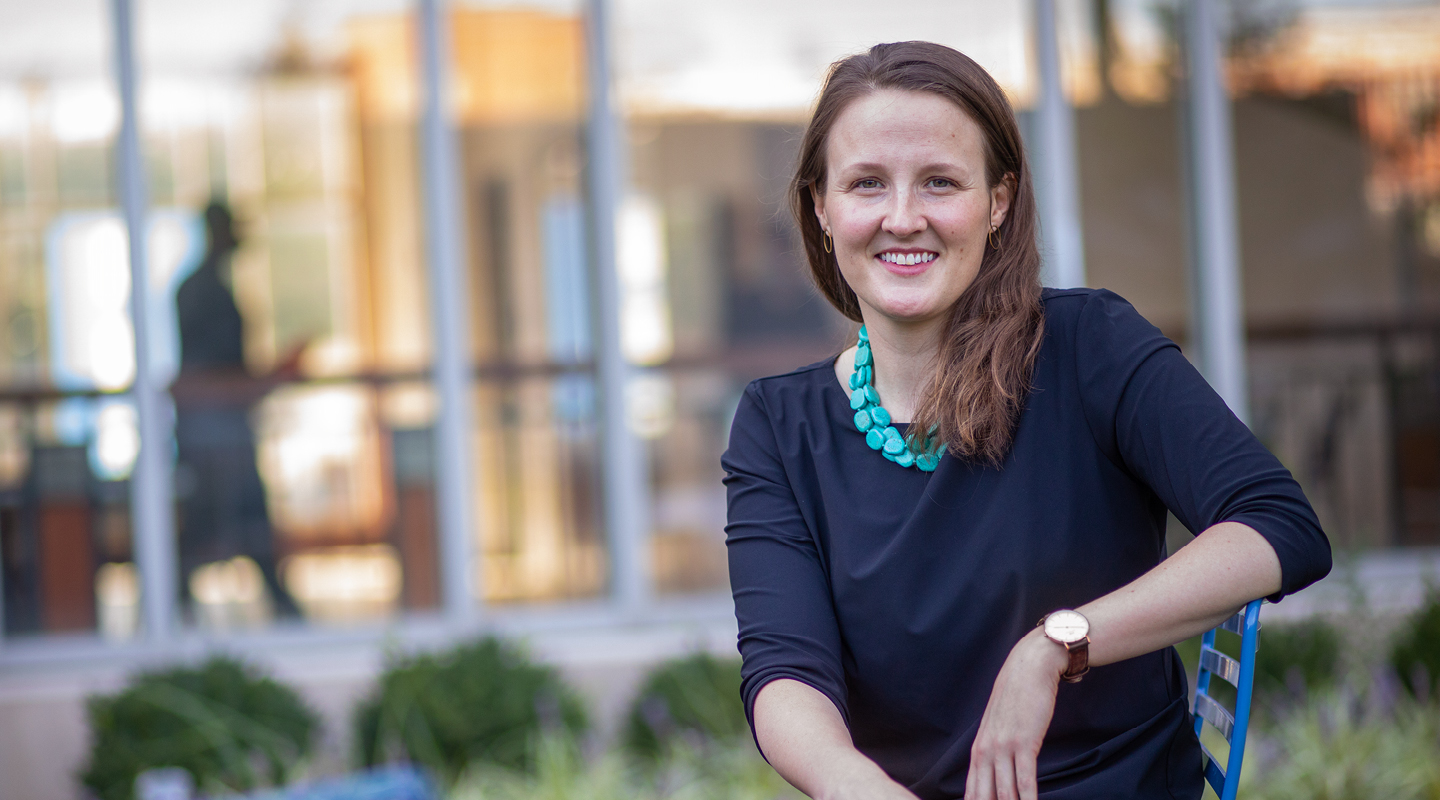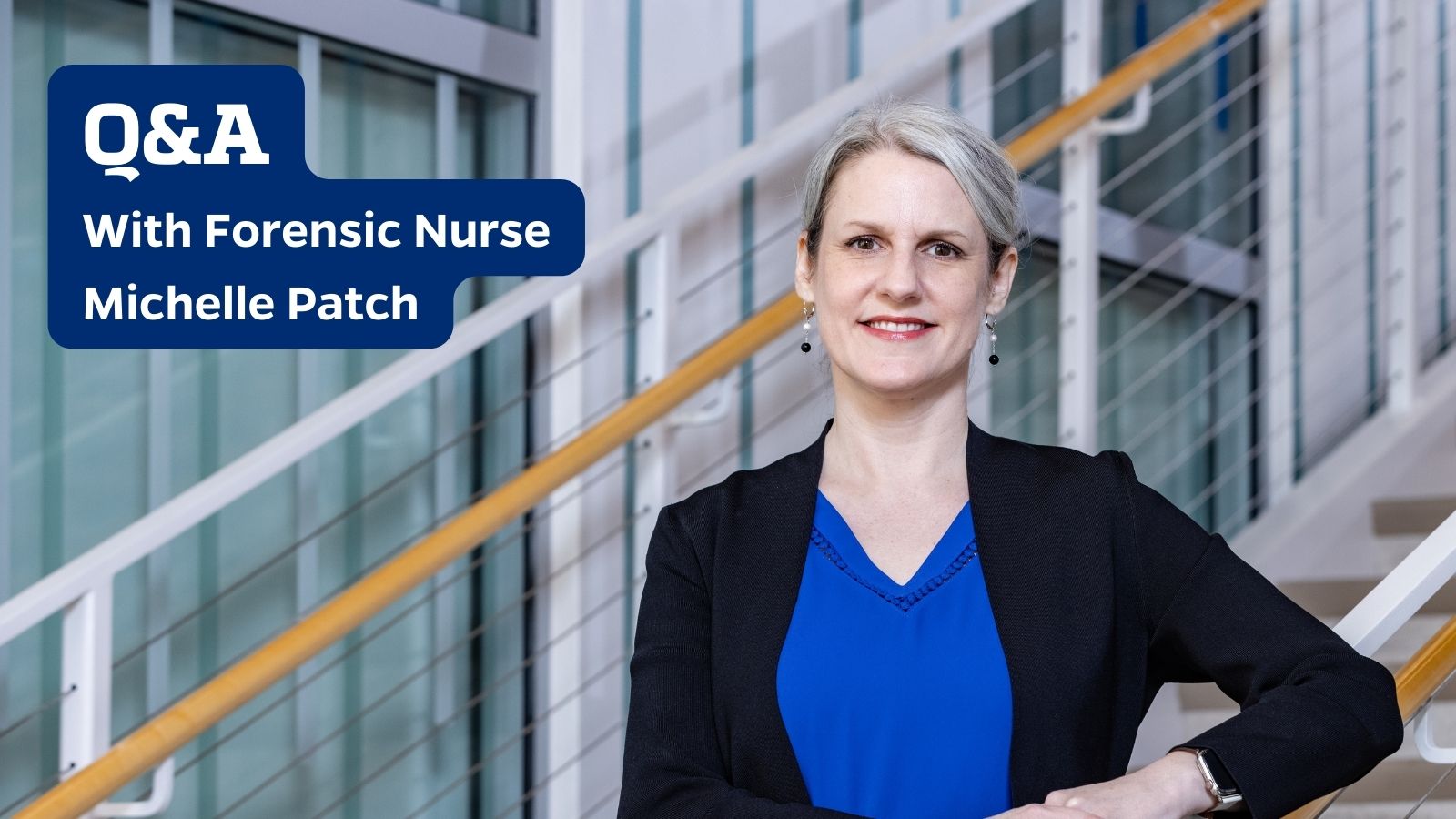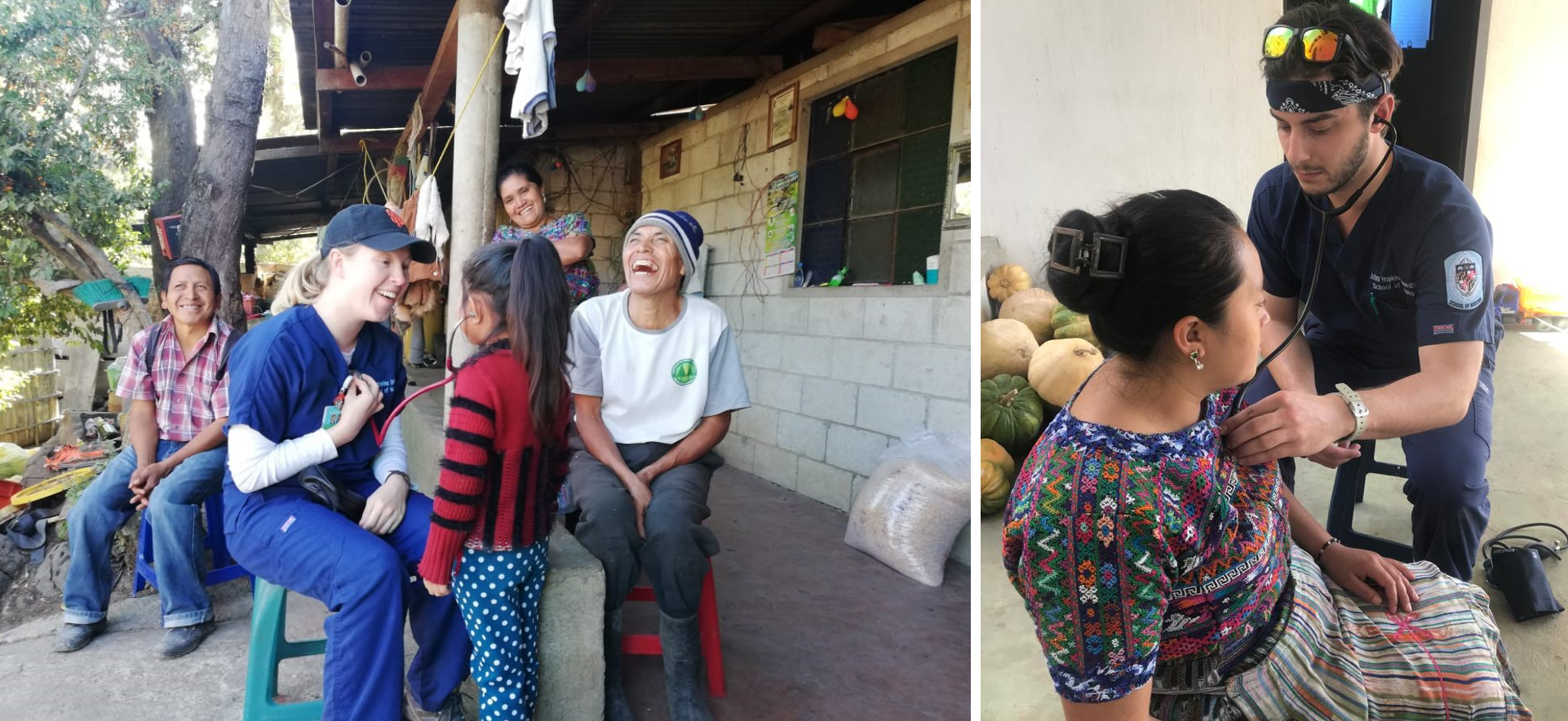It took a few extra trips around the sun, but Dorothy Coker has found her space in nursing
Written by Steve St. Angelo | Photo by Chris Hartlove
Among a galaxy of reasons to choose among the five-star programs at the Johns Hopkins School of Nursing, Dorothy Coker saw one tiny black hole: There was no program designed for students interested in space nursing—preparing to handle the health and safety issues that will undoubtedly arise or increase with wildly accelerating near- and deep-space travel.
5-4-3-2-1 …
Coker arrived for the MSN (Entry into Nursing) program on a mission. “I immediately went looking for faculty to partner with on building a new program,” she says. “I initially met Dr. [Vinciya] Pandian interviewing for the Research Honors Program, and she has been so receptive and supportive of the idea. I was also really lucky to find support and mentorship in Dr. [Mark] Shelhamer, who runs the Human Spaceflight Lab over at the School of Medicine.”
And liftoff!
A student-interest group Coker leads is now up and running, with ideas today potentially forming the curricula of tomorrow … and tomorrows after that.
Pandian, PHD, MBA, MSN, FAAN, assistant dean for immersive learning and digital innovation, calls Coker a star in the making. For her part, Coker says she’s amazed to have found such a willing partner, but she’s not really surprised.
“I wouldn’t have gotten anywhere without Dr. Pandian and others who do this incredible stuff at Johns Hopkins. Nothing is too big here,” Coker explains. “It’s still amazing to me going through these classes and seeing, your professor is the one who actually wrote the textbook. And if there’s something you want to do, hold tight! They’re ready to go—they’re going to work with you. There’s somebody here who’s probably an expert in that field with 20 years of experience.”
Coker has a ton of experience as well, but in a very different field—real estate. “I really took the long way around to get to nursing,” she explains. Specifically, Coker grew up in Portsmouth, NH, where her mom and her godfather ran a brokerage and a straightforward career path in real estate sat there, waiting for the right offer. Coker wasn’t buying. “My mom loves to tell a story: I’m walking out the door and I’m in the driveway, leaving for college, and said, ‘I will never do real estate.’ Anything but that.”
I didn’t understand all the different ways you can be a nurse.”
Health care had always been at the back of her mind. Nursing had not. So even as she volunteered for the Red Cross or helped at a children’s hospital, “I didn’t understand all the different ways you can be a nurse.” Instead, Coker set off for Kenyon College in Ohio (pre-med … not for her), switching to art (Kenyon’s printmaking program), then international law (consulting for a firm in Shanghai, China). Next, a decade in Boston real estate—famous last words. It was rewarding, and she misses it (all but having to market herself—“I was horrible at that part!”).
Instead, Johns Hopkins helped sell her on what she could accomplish in nursing. Coker obviously wanted a master’s program that let her chart her own nursing course rather than follow a pre-set path. She wanted to research, to do community-public health, “to be clinically involved.” (Check, check, check.) “And it was five semesters, which right now,” she jokes of the accelerated program, “I wish it was maybe twice or three times as long.”
She knows it might sound odd to focus on interstellar science when our planet has so many problems of its own. And she’s not personally interested in any real estate beyond Earth’s orbit, thank you. But she wouldn’t mind hitchhiking along (remotely) as humans learn to deal with aging, childbirth, injuries, radiation exposure, and all the unforeseen issues that increased space travel will surely bring—then applying that research to fix things at home. She’s down-to-earth, and then some.
“I’m literally a speck here,” Coker explains of her own place in the cosmos. “There is so much more out there that we don’t know, and it brings me a lot of peace to think about that. I know for a lot of people I say that and they say, ‘Really? Because that makes me feel insignificant.’ But for me, it’s a calming thing.”
Read more profiles from the “We Are All East Baltimore” series.

 Birth Companions Talk Doulas and Maternal Health with Mayor Brandon Scott
Birth Companions Talk Doulas and Maternal Health with Mayor Brandon Scott Forging Policy: How Can Doulas Improve Black Maternal Health?
Forging Policy: How Can Doulas Improve Black Maternal Health? Global Service Learning: Guatemala
Global Service Learning: Guatemala Q & A With Forensic Nurse, Michelle Patch
Q & A With Forensic Nurse, Michelle Patch Guatemala Re-visited: Rainwater Project Shows Value of Service-learning Trips
Guatemala Re-visited: Rainwater Project Shows Value of Service-learning Trips





